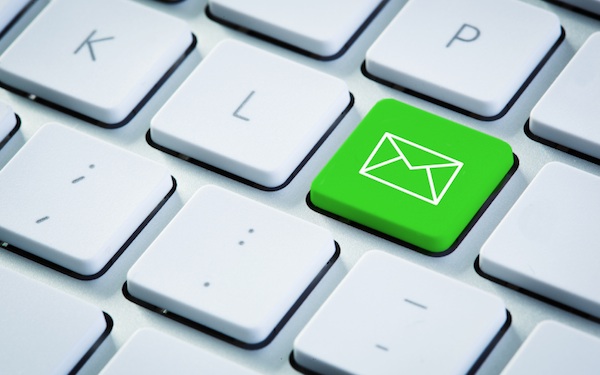Editor's note: Time is money, and emails take time. We're daily being bombarded by emails and it's just going to get worse. Maybe its time to get it under control. Dmitri Leonov has here 5 easy ways to do just that.

"If you’re like most people with a connection to the internet and a job that requires you interact via email, then you probably know what email hell feels like. The only good news is that you’re not alone. In fact, the average person gets more than one hundred emails per day. The bad news is it’s not getting better.
The number of emails you receive will continue to grow every year. So what, if anything, can you do to get a grip on this email avalanche? Start with these five tips.
1. Set a Time Limit
According to a recent McKinsey Global Institute report, people spent 28% of their time writing, reading, and answering email. Most of it is unproductive because email is reactive by nature. The inherent gamification of clearing your inbox provides a brief feeling of accomplishment. But unless you’re doing customer support, your job description probably doesn’t include “respond to every email.”
Answering email is just one part of work. That’s why you should determine how much time you want to spend in your inbox on a given day, and don’t exceed it. One suggestion is to dedicate 15-minute blocks every two hours to staying on top of email without letting it take over your day.
2. Know Your Etiquette
If you haven’t read the Email Charter, you are probably pissing off a lot of people. The average time it takes to respond to an email is greater than the time it took to create it. So every hour you spend writing emails is double for your recipients. The Email Charter lists ten specific tips everyone should follow to avoid this collective downward spiral. The core underlying principle of the Charter is “respect recipient’s time.”
3. Prioritize
Most email clients and web mail UI’s give each email the same amount of real estate on the screen. Flags, stars, and other prioritization signals help, but it’s hard for our brain to discriminate. This creates a tendency to give each email the same amount of attention upfront.
In reality, not all emails are created equal. Some need to be read and responded to right away. Others should be archived or deleted in bulk. Keep in mind that in a few years you’ll get even more email than you do now. Since there will still be only twenty four hours in a day, the bar for emails that deserve your full attention will need to be higher.
4. Don’t Signup for Junk
This is an easy one. When signing up for a new web service, opt out of “updates.” When given an option to get a real time, daily, or weekly summary of any kind, choose the least frequent option. Also, stop signing up for newsletters you’re never going to read.
However, be careful when unsubscribing or marking emails as spam. Unsubscribing is only as reliable as the sender’s integrity. You may also be exposing yourself as a real person to a spammer, who will sell your address to someone else. On the other hand, marking a legitimate email you subscribed to as spam is bad karma. It could impact the sender’s standing with email services.
5. Don’t Open Mail Twice
Inbox Zero has emerged as a respected process for managing email. The key principle is to never open the same email twice. As you open each email, you give yourself only five options: delete/archive, delegate, respond (if you can do it in under two minutes), defer, or do. This process keeps you from wasting time by re-reading the same information.
Although many suggest that email should be reinvented, it’s not going to happen any time soon. According toAndrew McAffee, whatever solution replaces email would have to be not just better than email, but ten times better. He argues that people are typically so averse to change that they overvalue current solutions by three times and undervalue proposed substitutes by three times.
But even if email is replaced by another communication protocol (similar to Asana or Yammer?) that replacement will continue to be ruled by the same principle of scarcity of time." That’s why overcoming the bad behaviors that are created by email overload are key.
Dmitri Leonov is vice president of growth at Sanebox. Follow him at @dmitri.
To see the full article click here.
Make Us Your-Web-Guys Today
 Step 1: Tell us about your business
Step 1: Tell us about your businessMy company...
